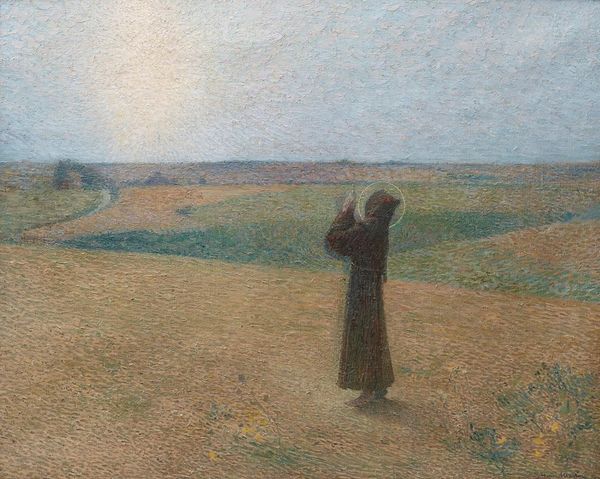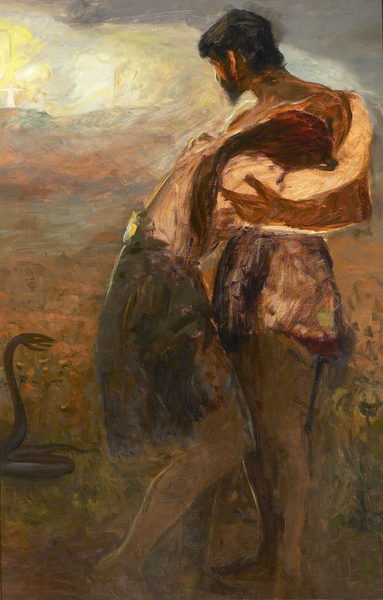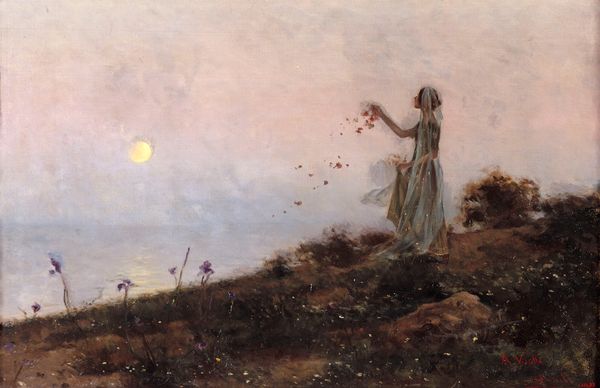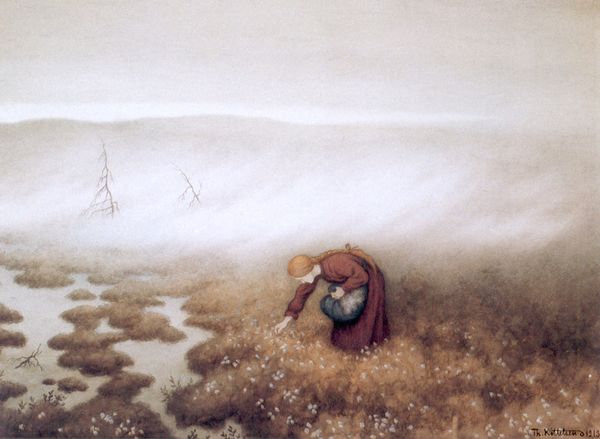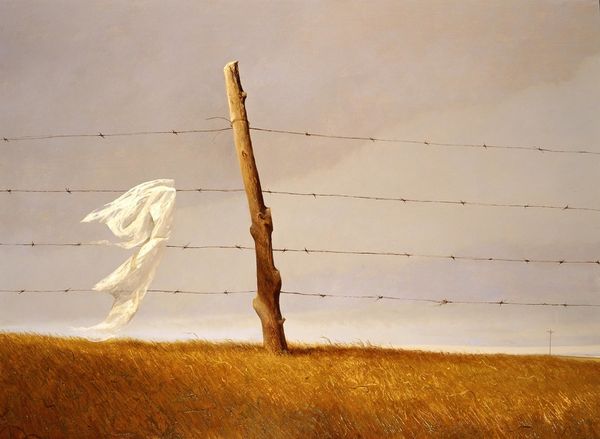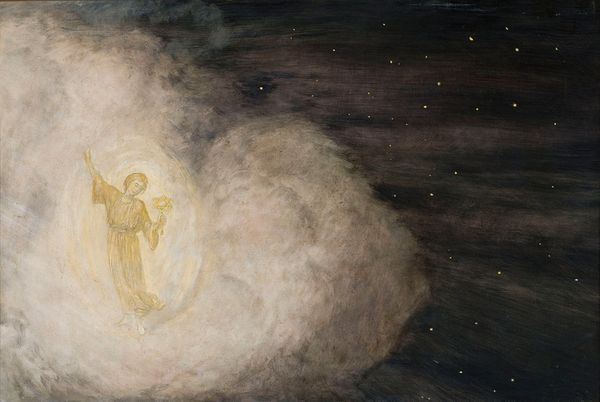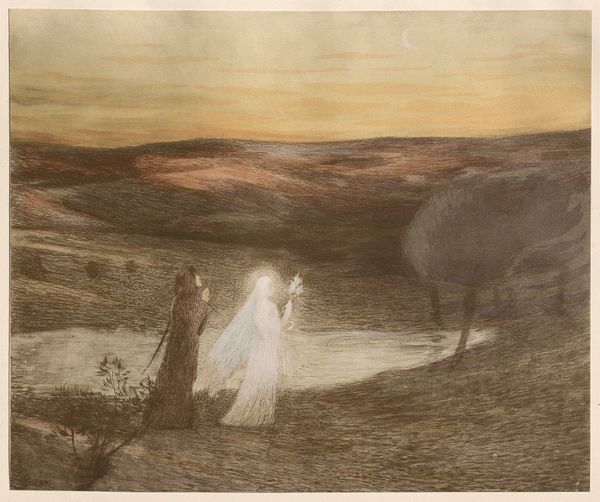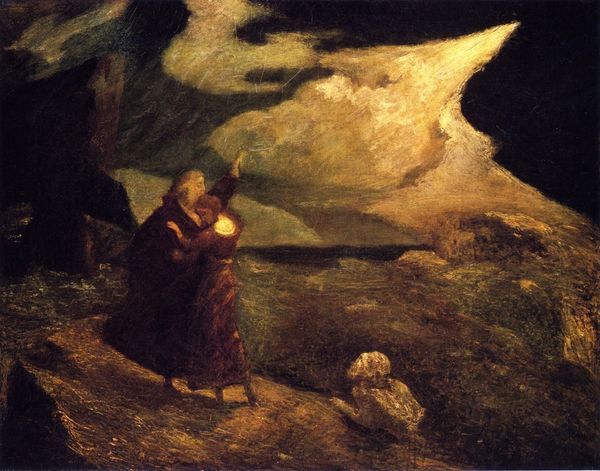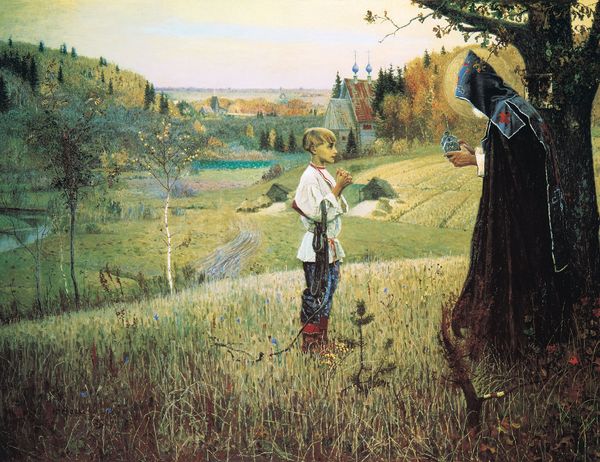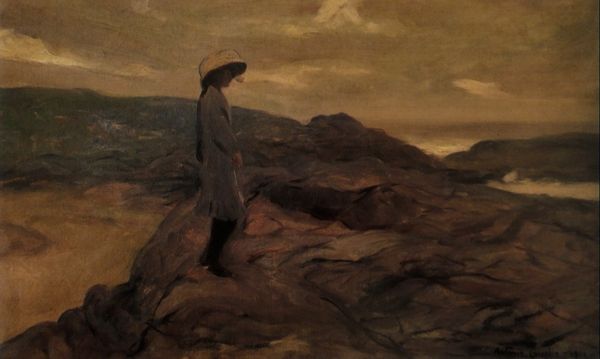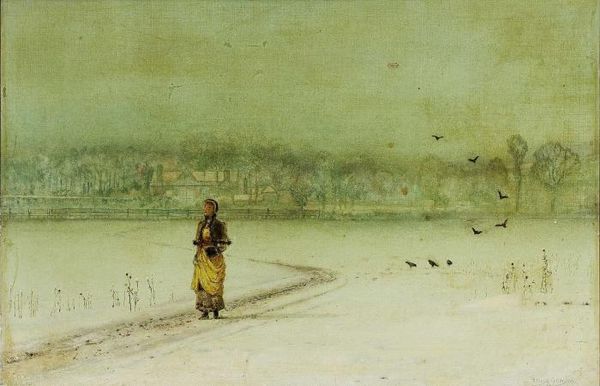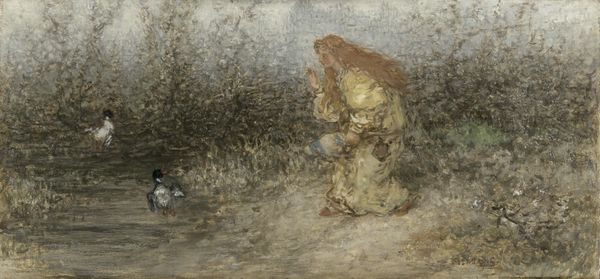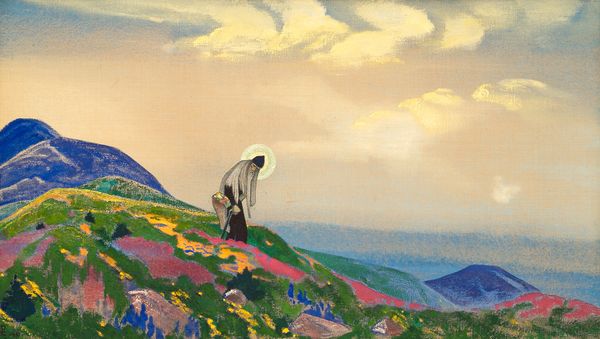
Copyright: Public Domain: Artvee
Curator: What overwhelms me first about Vasily Vereshchagin’s "Defeated. Memorial Service," painted in 1879, is that crushing emptiness, this flat, bleached expanse... I feel desolate just looking at it. Editor: The painting is bleakly beautiful, a panorama of sorrow meticulously rendered in oils. I can understand why the artist painted it. What I find fascinating, and troubling, is the public’s willingness, and perhaps even need, to consume images of tragedy, especially those associated with state-sponsored violence and warfare. Curator: It feels like hallowed ground made profane, the sacred corrupted by human conflict. See how Vereshchagin used color so sparingly – that monochrome sea of yellow. But look closer! Half-buried bodies lie scattered across the painting’s middle ground. It hits you like a gut punch, doesn't it? That field isn’t barren at all; it's full. Editor: Indeed, it challenges any heroic narrative of war. This isn’t a scene of valor or conquest. It’s a damning indictment of conflict and its human cost, a silent scream against military glory. Look at the details of the Russian Orthodox priest and military officer; their inclusion feels more bureaucratic, more of a ritualistic obligation. Curator: Yes, like automatons going through the motions of grief. Yet, despite the desolation, there is that little suggestion of light in the distant sky…hope, maybe? Or just the faintest echo of life refusing to be extinguished entirely. Vereshchagin understood that even in the face of utter annihilation, something remains. Even in the ashes of a massacre there is something divine. Editor: Perhaps he’s suggesting that institutional responses, such as the memorial service, often fall drastically short of addressing or resolving collective trauma. And I think its realism adds power, especially during an era when many sought romanticized and revisionist views on war. It confronted its contemporary audience with undeniable truth of armed conflict. Curator: Which still resonates, doesn't it? Vereshchagin shows us, starkly and beautifully, that victory always comes at a steep price, usually paid by those with the least say in the matter. Editor: Absolutely. It compels us to reflect critically on the human consequences of historical narratives and actions, offering no easy answers, but forcing vital questions about state power and individual fate.
Comments
No comments
Be the first to comment and join the conversation on the ultimate creative platform.
